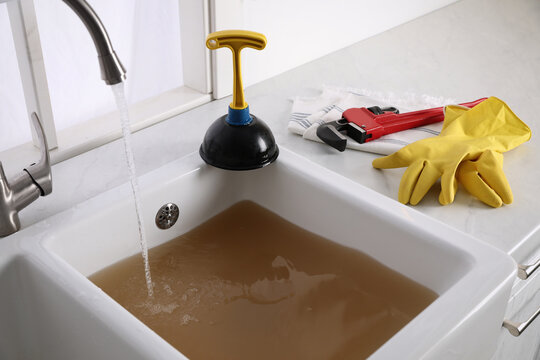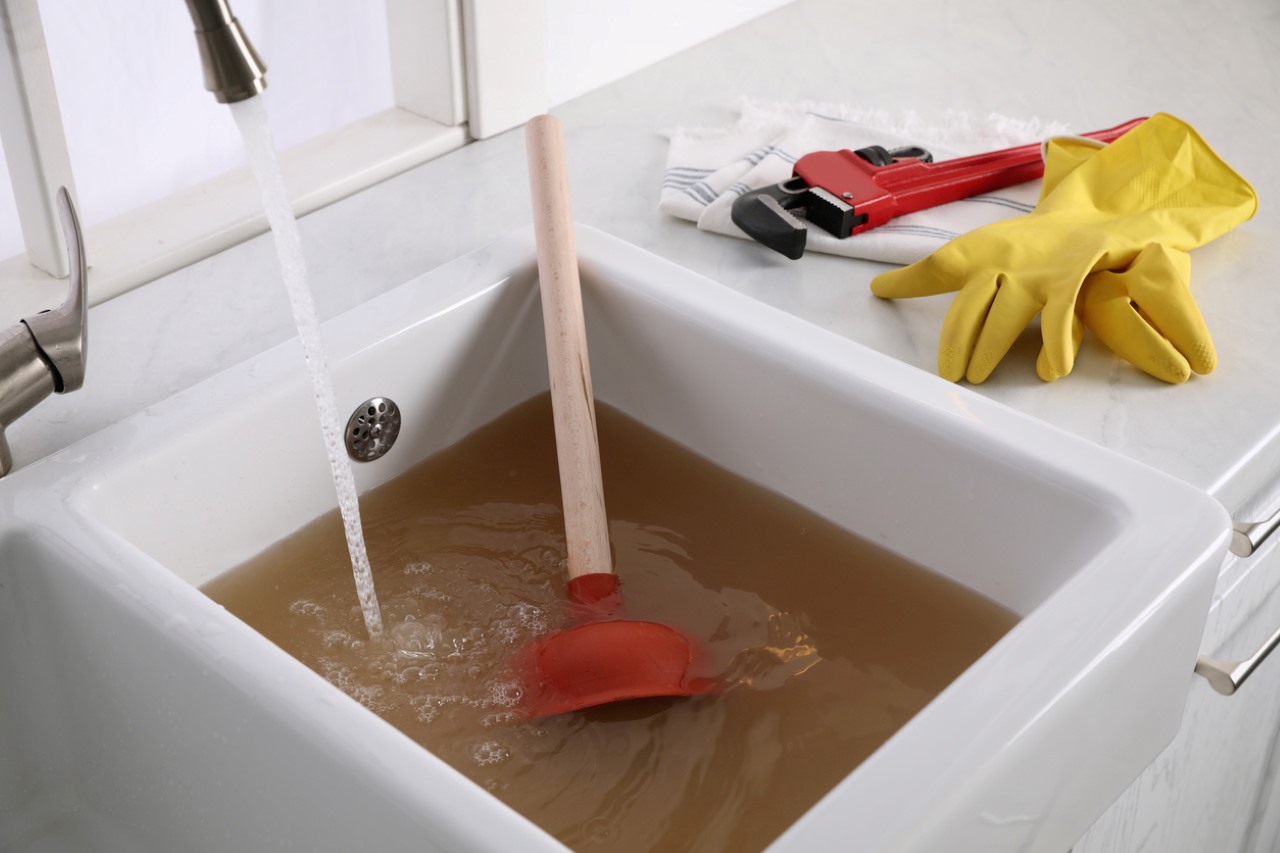Tips to Effectively Apply Plunger and Drain Cleaners: Professional Tips
Tips to Effectively Apply Plunger and Drain Cleaners: Professional Tips
Blog Article
How do you actually feel in relation to Here's How to Correctly Use a Toilet Plunger?

Intro
Proper maintenance of house drains is necessary for preventing obstructions and ensuring smooth water flow. Among the trick devices in every property owner's toolkit is the bettor, together with numerous drainpipe cleansers created to tackle persistent clogs efficiently. This article discovers how to make use of bettors and drain cleansers properly to keep your drains streaming freely.
Section 1: Comprehending Bettors
Sorts of Plungers
There are a number of types of bettors available, each designed for various kinds of drains and clogs. One of the most typical types include mug plungers, flange bettors, and accordion bettors.
Just How Plungers Work
Bettors work with the concept of developing pressure and suction to displace clogs. When correctly used over a drain, they develop a vacuum cleaner that can pull out debris or break up blockages.
Picking the Right Bettor
Choosing the ideal bettor depends on the sort of drainpipe and the nature of the obstruction. Mug bettors are excellent for sinks and tubs, while flange plungers are much better fit for toilets because of their style.
Typical Mistakes with Bettors
Avoiding these errors makes certain efficient plunging: inappropriate seal around the drain, not enough pressure, and unclear bordering debris.
Section 2: Utilizing Plungers Successfully
Prep work
Before plunging, ensure the plunger covers the drainpipe entirely and develops a limited seal. Clear any type of visible particles around the drainpipe opening.
Technique
Begin with gentle plunging activities to build suction. Rise pressure progressively, using a stable rhythm. Repeat as required till the drainpipe removes.
Repairing Tips
If plunging does not work, attempt readjusting the seal, using oil jelly for a far better seal, or utilizing a different type of plunger.
Section 3: Recognizing Drainpipe Cleansers
Sorts Of Drainpipe Cleaners
Drain cleansers can be chemical or chemical. Chemical cleaners make use of strong chemicals to liquify blockages, while chemical cleansers use all-natural enzymes to break down raw material.
How Drain Cleansers Job
Chemical cleaners respond with blockages to liquify them, while enzymatic cleansers break down organic products like hair and oil without damaging pipes.
Safety Considerations
Constantly use gloves and eye security when making use of chemical drain cleansers. Make sure adequate ventilation and follow producer instructions carefully.
Eco-Friendly Alternatives
Take into consideration using vinegar and cooking soda or enzyme-based cleansers for environmentally friendly choices that are more secure for pipelines and the setting.
Area 4: Making Use Of Drain Cleansers Efficiently
Application Techniques
Put chemical cleansers directly right into the drainpipe opening. Enable them to work for the suggested time before flushing with hot water. Enzymatic cleaners need to rest overnight.
Preventative measures
Prevent mixing various types of cleaners, as this can produce toxic fumes. Never ever use chemical cleansers together with a plunger, as splashing can take place.
Dealing With Stubborn Blockages
For persistent obstructions, take into consideration utilizing a plumbing serpent or calling a specialist plumbing technician to prevent damage to pipes.
Final thought
Finally, recognizing just how to make use of bettors and drainpipe cleaners successfully is essential for keeping healthy and balanced plumbing systems. By picking the right devices and methods, homeowners can take on small clogs and protect against major pipes problems down the line.
How To Properly Use A Plumbing Snake To Clear Drains
When any drain clogs in our home arise, we tend to gravitate toward the plunger and little else. In cases where the plunger and its vacuum-created pressure are not able to clear clogs, many immediately move to harmful chemicals or simply call their plumber to fix the issue.
we’re happy to help with all drain cleaning needs and concerns. This includes informing you on a few other home remedies you may have at your disposal for minor to moderate clogs, one of which is the use of a plumbing snake. Many people have never used one of these before – let’s go over the steps to take when your drain clogs and you have a plumbing snake available.
Attempt Plunger Use
The first step here, as we noted above, should indeed be to grab your plunger when you notice a drain clog and attempt to resolve it this way. If you’re unsure how to use a particular type of plunger, our plumbers can answer any questions you have. If this doesn’t do the trick, however, you move on to the snake.
Locate And Prepare Snake
A plumbing snake is a metal or plastic device that’s generally about a quarter of an inch thick. It’s design with significant extensions, meant to reach down into your clogged drain and push the clog out. Snakes also contain drain augers that will latch onto and push stubborn blockages.
If your plunger doesn’t clear a clog, locate your snake and bring it to the drain in question. We also recommend keeping a bucket nearby to collect the clog once you pull it out, plus we’d advise wearing goggles and possibly protective gloves.
Feed Snake
Once you’re ready to go, feed the snake slowly down the drain, using the crank device it comes with to keep it moving until it finds the clog. Once this happens, much of the clog will be latched onto the coil so you can pull it out, while the rest will simply break up and flow downward.
Detach Debris
Remove the snake slowly from the drain, and once you’ve done so, pick off any debris that’s stuck to the coil. This is another area where wearing gloves is a must.
Flush Drain
Finally, take a few minutes to ensure the snake has done its job correctly. If you’ve been using it on a toilet, flush the toilet a couple times and make sure everything flows well. If you’ve used it on a different drain, flush it with some room temperature water.
https://www.mybuddytheplumber.com/blog/how-to-properly-use-a-plumbing-snake-to-clear-drains/

Application Techniques
Put chemical cleansers directly right into the drainpipe opening. Enable them to work for the suggested time before flushing with hot water. Enzymatic cleaners need to rest overnight.
Preventative measures
Prevent mixing various types of cleaners, as this can produce toxic fumes. Never ever use chemical cleansers together with a plunger, as splashing can take place.
Dealing With Stubborn Blockages
For persistent obstructions, take into consideration utilizing a plumbing serpent or calling a specialist plumbing technician to prevent damage to pipes.
Final thought
Finally, recognizing just how to make use of bettors and drainpipe cleaners successfully is essential for keeping healthy and balanced plumbing systems. By picking the right devices and methods, homeowners can take on small clogs and protect against major pipes problems down the line.
How To Properly Use A Plumbing Snake To Clear Drains
When any drain clogs in our home arise, we tend to gravitate toward the plunger and little else. In cases where the plunger and its vacuum-created pressure are not able to clear clogs, many immediately move to harmful chemicals or simply call their plumber to fix the issue.
we’re happy to help with all drain cleaning needs and concerns. This includes informing you on a few other home remedies you may have at your disposal for minor to moderate clogs, one of which is the use of a plumbing snake. Many people have never used one of these before – let’s go over the steps to take when your drain clogs and you have a plumbing snake available.
Attempt Plunger Use
The first step here, as we noted above, should indeed be to grab your plunger when you notice a drain clog and attempt to resolve it this way. If you’re unsure how to use a particular type of plunger, our plumbers can answer any questions you have. If this doesn’t do the trick, however, you move on to the snake.
Locate And Prepare Snake
A plumbing snake is a metal or plastic device that’s generally about a quarter of an inch thick. It’s design with significant extensions, meant to reach down into your clogged drain and push the clog out. Snakes also contain drain augers that will latch onto and push stubborn blockages.
If your plunger doesn’t clear a clog, locate your snake and bring it to the drain in question. We also recommend keeping a bucket nearby to collect the clog once you pull it out, plus we’d advise wearing goggles and possibly protective gloves.
Feed Snake
Once you’re ready to go, feed the snake slowly down the drain, using the crank device it comes with to keep it moving until it finds the clog. Once this happens, much of the clog will be latched onto the coil so you can pull it out, while the rest will simply break up and flow downward.
Detach Debris
Remove the snake slowly from the drain, and once you’ve done so, pick off any debris that’s stuck to the coil. This is another area where wearing gloves is a must.
Flush Drain
Finally, take a few minutes to ensure the snake has done its job correctly. If you’ve been using it on a toilet, flush the toilet a couple times and make sure everything flows well. If you’ve used it on a different drain, flush it with some room temperature water.
https://www.mybuddytheplumber.com/blog/how-to-properly-use-a-plumbing-snake-to-clear-drains/

We were guided to that write-up on Here's How to Correctly Use a Toilet Plunger from someone on our other web blog. So long as you appreciated our blog post if you please don't forget to pass it around. Thank you for being here. Don't forget to come visit our website back soon.
Call Today Report this page